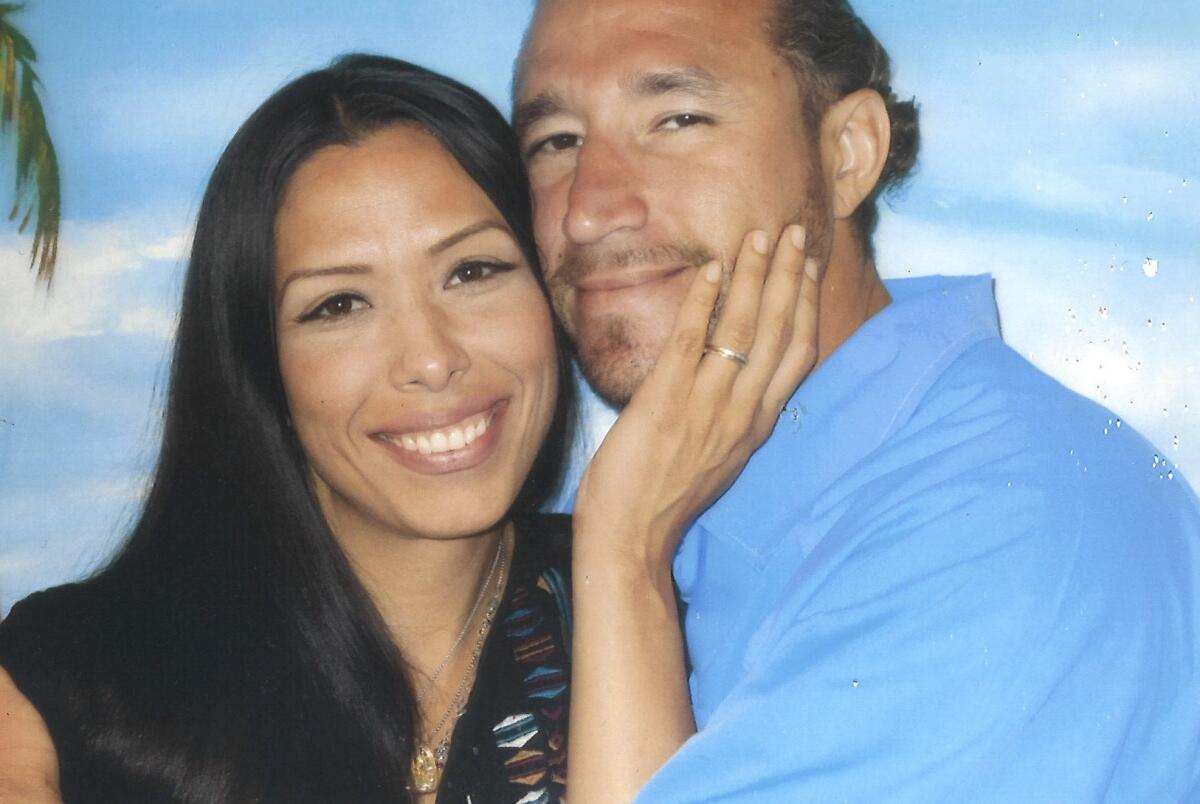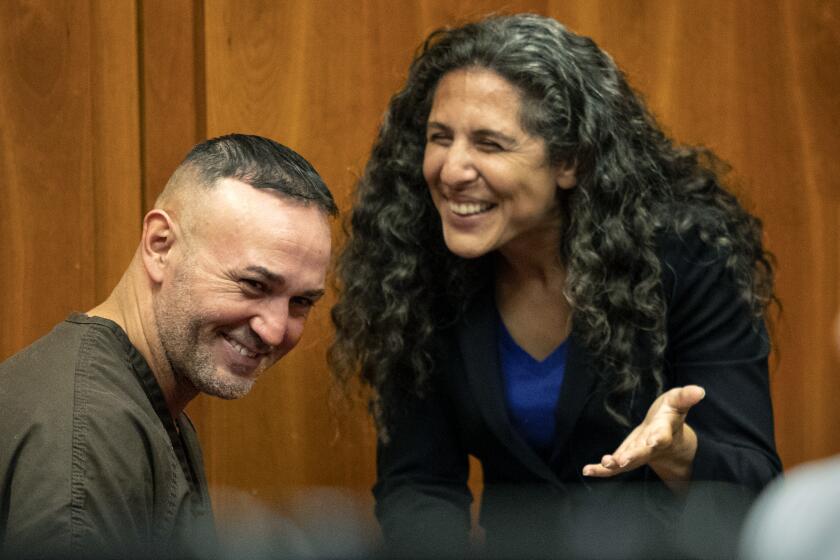She endured a traumatic cavity search when visiting a California prison. Now she won a $5.6-million settlement

When Christina Cardenas visited her husband in 2019 at the California Correctional Institution in Tehachapi, she was forced to undergo a traumatic, hours-long cavity search that involved her stripping, being X-rayed and squatting over a mirror, she said.
On Monday, Cardenas’ attorneys announced a $5.6-million settlement of a lawsuit filed against the prison and the hospital system that supervised the search.
“There’s no recompense that can fully heal the pain caused by the sexual violation,” Cardenas said at a news conference Monday.
The Times generally does not publish the names of sexual assault victims unless they come forward publicly.
The ordeal began on a September morning in 2019 when she said she drove four hours to visit her husband, Carlos Eugene Cardenas, who is in prison in Tehachapi for armed robbery.
The conduct of the officials who searched her for contraband over the next several hours amounted to “state sanctioned torture,” according to a statement by attorney Gloria Allred, whose firm represented Cardenas.
Officers informed Cardenas that they had a search warrant and would be conducting a strip search, according to the lawsuit Allred brought against the California Correctional Institute, Adventist Medical Center Tehachapi and 10 other defendants.
As officers informed her of the intent to search her and her belongings, Cardenas began to cry, the lawsuit said.
“Oh wipe away your tears! You know what you and your husband have been doing!” an officer told her, according to the lawsuit.
“Don’t tell me to wipe away my tears, I am innocent, and what you are saying to me is inappropriate,” Cardenas replied.
The Department of Justice is investigating allegations of rape, groping and sexual harrassment by correctional officials in California women’s prisons.
Officers then made Cardenas take off her clothes and “squat over a mirror placed on the ground and cough,” the lawsuit said, then to “squat wider apart and to spread her genitalia.” They found no contraband.
Cardenas was then handcuffed and taken to Adventist Medical Center Tehachapi, arriving around 9:45 a.m.
A doctor at the medical center “unlawfully forced Christina to complete a pregnancy test,” then asked about her medical history, “including personal women’s health history and mental health,” the lawsuit said.
She was denied water and food and had to urinate in a pan instead of being allowed to use a restroom, the lawsuit said. She was imaged by X-ray; the images showed no contraband.
The search warrant explicitly stated that without Cardenas’ consent, a body cavity search could be conducted only after X-ray confirmation of a suspected foreign object within her. She did not consent, the lawsuit alleged, but the search happened anyway.
As Cardenas protested, the male doctor engaged in “unwanted and forceful penetration of Christina’s vagina and anus” using a “grabbing motion” with his fingers, according to the lawsuit.
Officers then brought her back to the prison and told her that she would not be able to see her husband. Her visit had been canceled.
The California Correctional Institution and Adventist Health did not immediately respond to requests for comment.
Lionel Rubalcava, exonerated and freed after serving 17 years in prison, has settled a federal lawsuit against the city for a record $12 million.
In response to the lawsuit, the California Department of Corrections and Rehabilitation agreed to distribute a memo to its staff instructing them to be “more protective” of visitors undergoing body cavity searches.
The initial filing had sought an injunction to stop the practice of body cavity searches of female visitors entirely, but that was not part of the settlement agreement detailed Monday.
Cardenas said she filed the suit “to ensure that others do not have to endure the same egregious offenses that I experienced,” she said.
She emphasized that corrections officers should “treat visitors not as criminals, but with humanity,” adding that she hoped she could be a “beacon” for other families of incarcerated people.
“It is crucial not to criminalize or victimize those who are visiting and supporting true rehabilitation,” Cardenas said, wiping away her tears.
More to Read
Sign up for Essential California
The most important California stories and recommendations in your inbox every morning.
You may occasionally receive promotional content from the Los Angeles Times.













